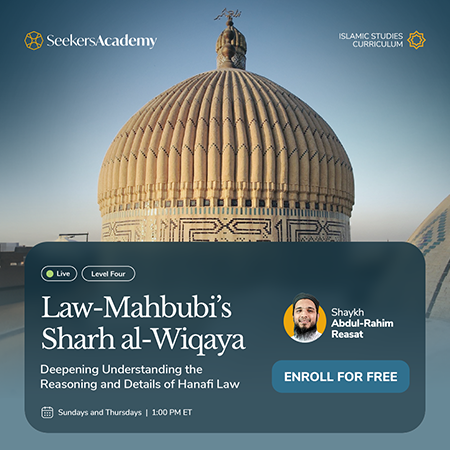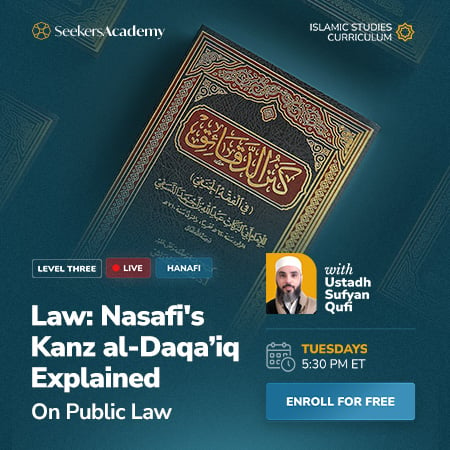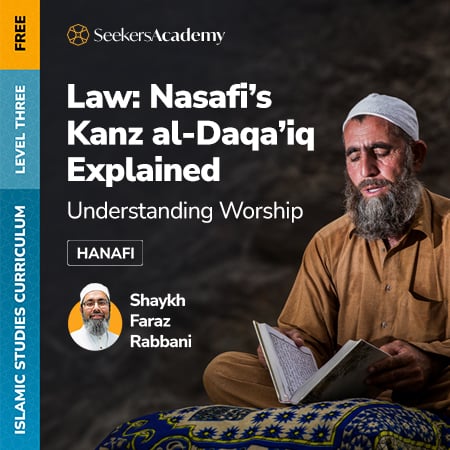
This is a study of a fairly complicated and advanced text in the Hanafi school. It will explore the key issues of the Hanafi school, which are significantly greater than those covered in the text of Imam Quduri. Legal reasoning and the positions of the mujtahids of the Hanafi school, and the preferences of the later authorities will be discussed.
The course will provide students the tools to read and understand texts that are terse and complicated in their structure.The method of study will allow students to access the more more advanced works of the school with confidence, as there will be frequent readings of sections from other works and the selections within the supercommentary of Shaykh ‘Abd al-Hayy al-Laknawi.
- Teacher: Shaykh Abdul-Rahim Reasat
Sharh al-Wiqaya is a commentary on the text Wiqaya al-Riwaya li Masa’il al-Hidaya by the maternal grandfather, Shaykh Mahmud b. Ahmad al-Mahbubi. The Wiqaya is one of the four main primers in the Hanafi school that function as a means to preserve the narrated positions of Imam Abu Hanifa. It was written as a summary of the rulings discussed in the Hidaya, which itself is a commentary of Bidaya al-Mubtabi, a text penned by al-Marghinani to summarise Mukhtasar al-Quduri and Imam Muhammad b. al-Hasan al-Shaybani’s al-Jami’ al-Saghir.
Sharh al-Wiqaya, therefore, is a very valuable text in the sense that it follows the stream of rulings that work up from the Matan of al-Quduri to al-Hidaya and its commentaries. The text doesn’t do much to decipher the matan it is based off, but the conclusions and points is presents based on the matan are very valuable. Indeed, the Ottomans considered master of this text sufficient qualification for someone to be appointed as a judge.
It has a large number of supercommentaries, some of which are in print today. The most useful and available of which is ‘Umda al-Ri’aya by Shaykh ‘Abd al-Hayy al-Laknawi, which clarifies the text and expands its discussions to include key explanations, reasoning, and alternative stances in the Hanafi school.
This text was a main part of many curricula, being placed after one of the basic primers and before the study of al-Hidaya. Therefore, it is the perfect entry point to the higher texts of the Hanafi school.
This course is for students who are proficient in Arabic and have studied a complete primer, such as Mukhtasar al-Quduri or al-Mukhtar. Study of a commentary of a text on that level, such as Maydani’s Lubab will be very advantageous in mastering this text.
- Understand a key advanced commentary of the Hanafi school.
- Learn the main discussions of al-Hidaya in a condensed form.
- Learn the terminology of the Hanafi school and the key scholars and approaches in adopting positions.
- Being able to explore and understand discussions from texts on a similar or slightly higher level.
- Knowing the relied upon positions of the Hanafi school.
- Understanding when the school upheld the positions of Imam Abu Hanifa and when it preferred the positions of other Hanafi mujtahids.


